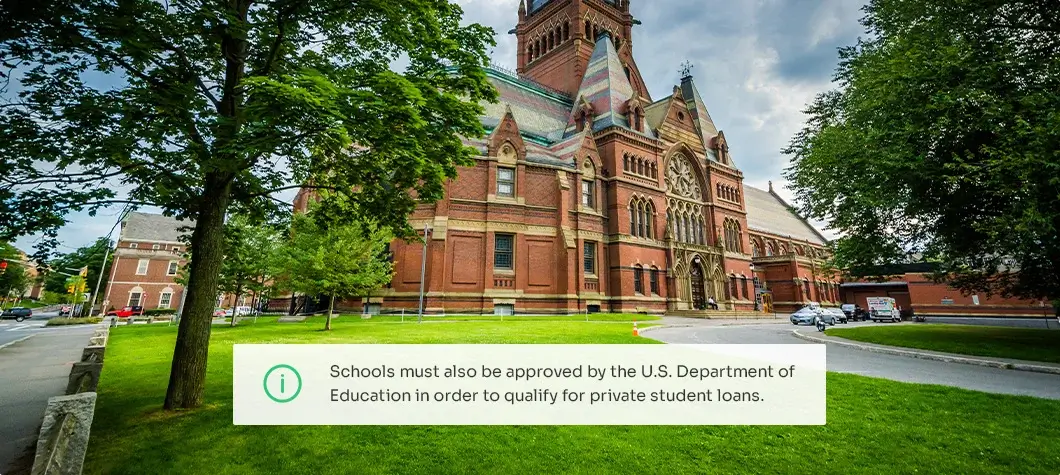However, many students don't pursue this opportunity because they believe the costs will be too high. In fact, studying your degree abroad can be more affordable than staying in the US.
If you are an American student that wants to study your degree at a foreign school instead of going to college in the US, then you may be wondering how much it will cost and if there is any way for you to finance it. The answer is yes!

Getting your degree abroad is different
There's no doubt you've got more to do than your friends who are playing it safe and going to an American school. That means you're going to have to plan ahead and make sure you are well prepared.
If you already have a particular school in mind where you want to study, find out if they offer the degree you want, how much tuition costs, what their enrollment policies are for international students, and anything else like resources and dedicated programs they have to help international students to study there.
As you're researching everything, make a to-do list. Keep track of what paperwork needs to be done – like visa forms, housing applications etc. In some countries international students are required to register with the police. Do you have a valid passport? Make sure you get that well in advance! Who will you list as your emergency contacts? Do you have friends or family already in the destination country? You'll need medical insurance, too. You should make a file to help you organize all your documents and the information and correspondence you get from your school.
If possible, find out the name and contact details of the person at the school who will be processing your application. If you're not sure who that is, the best place to start is the school's international student office.

Federal Funding for an International School
If you plan to get your entire degree outside the United States, then it could be possible for you to use federal student loans. The type of aid will depend on whether or not you go as an undergraduate or graduate and what kind of program that is.
Federal student loans often don't cover the full cost of attendance at a foreign university, which is why American applicants turn to a private educational loan as an additional source of funds. These can be from a bank or private lender.

School / University Eligibility
If you've decided to get your degree from a school outside the U.S. we can help you find out which international schools participate in private student loan programs and guide you through the process of getting a Foreign Enrolled Loan to help you cover your tuition fees and other costs.
In order to be eligible to participate in federal student aid programs, schools must be accredited by an agency recognized by the US Secretary of Education. Federal financial aid is available only to students attending eligible institutions. You can find a list of currently participating schools by visiting here and searching “foreign country.”
If you're in any doubt it is best to contact the financial aid office at your chosen institution for further information.
All eligible schools are listed on our Eligible School List.

Student Eligibility
If you want to study your degree at an international school, make sure you are eligible for the Foreign Enrolled Loans program! In order to be eligible for these loans, both you and your school have to meet certain requirements.
There are several requirements that students must meet in order to be eligible to receive federal student aid for attendance at a foreign school.

First of all, the student must be enrolled as a regular student. This means that the student is enrolled (or accepted for enrollment) for the purpose of earning a degree, certificate, or other recognized credential offered by the school. The school in question must determine separately for each individual student whether he or she is a regular student. Undergraduate students and those on graduate or post-graduate level courses can apply.

Secondly, the student must be qualified to study at the postsecondary level. This means that the student has earned a high school diploma, a secondary school completion credential, or its recognized equivalent in order to be considered qualified. These equivalents include General Education Development tests, state certificates, and secondary school completion credentials from foreign schools. Students who are enrolled in foreign schools cannot qualify by taking an “Ability to benefit” Test.
Citizenship Requirements
In order to be eligible to receive a foreign enrolled loan, you must be a US citizen, a US permanent resident, a citizen of certain Pacific islands (the freely associated states), or an eligible non-citizen. This includes citizens of the 50 states, the District of Columbia, Puerto Rico, the US Virgin Islands, Guam, and the Northern Mariana Islands. Eligible non-citizens must be in the US for other than a temporary purpose with the intention of becoming a citizen or lawful permanent resident, as evidenced by the United States Citizenship and Immigration Services (USCIS) in the Department of Homeland Security (DHS). Non-U.S. citizens holding an Arrival-Departure Record showing one of these designations are eligible.
- "Refugee"
- "Asylum Granted"
- "Cuban-Haitian Entrant (Status Pending)"
- "Conditional Entrant" (valid only if issued before April 1, 1980)
- Victims of human trafficking, T-visa (T-2, T-3, or T-4, etc.) holder
- "Parolee" (You must be paroled into the United States for at least one year and you must be able to provide evidence from the USCIS that you are in the United States for other than a temporary purpose and that you intend to become a U.S. citizen or permanent resident.)


Find out How to Open Up a Bank Account in the US.
International Student Loan FAQ
Loan Funds
The maximum loan you can receive would be for the total cost of attendance at your school. If you receive any additional funding in the form of other grants, awards, scholarships or loans this would reduce the amount you can apply for with private lenders.
Your loan funds are usually paid directly to your university abroad to cover tuition and your school will receive payment within a few weeks of your successful application in most cases, and any remaining funds after all university education costs have been deducted any remaining amount will be paid into your nominated account.
Loan Application Process
The entire process can now be done with an online application. First use the loan comparison tool on this page. Select your nationality as U.S. Citizen if you meet the citizenship requirements above. Then select your destination country and find your school. You will then be shown any lenders that offer loans for international study at that school.
If you meet the eligibility requirements of the loan servicer you will be able to proceed with your application. There are no application fees with our partner lending institutions.
Begin the loan application process here.
Repayment Plans
Typical loan terms that lenders offer might be a 10-year repayment term. They may offer fixed and deferred repayment options, too.
Repayment terms will vary with your lender and your particular circumstances, and you will be provided with all the relevant options either at the time of application or after initial approval but before you sign your agreement.
Your lender may have a range of fixed and variable interest rates for their student loan products.
Learn about repayment here.
Co-signers
You as the student will be the primary borrower. Most first-time applicants don't have the required credit history or minimum credit score to apply on their own, so a co-signer is recommended for all applications. This helps to secure the loan and the best interest rates.
Find out more about cosigners.
Study Abroad Loans
Study Abroad Loans are those that cover a shorter study-abroad program such as a semester abroad or year abroad. These Foreign Enrolled Loans are specifically for you if you want to take your entire degree program overseas.
Learn more about Study Abroad Loans.

International Financial Aid Resources center



